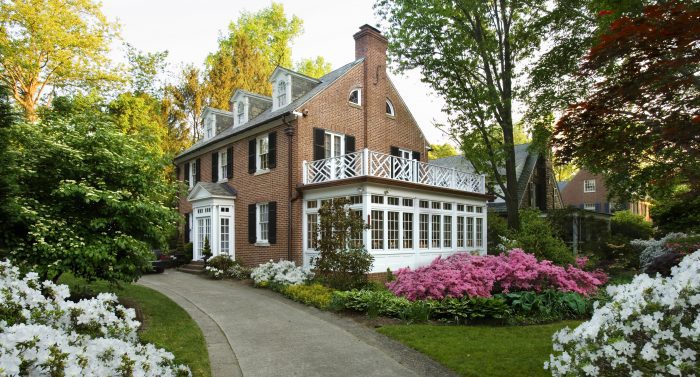Between You and Me: Are you stuck in your house? Here is a modest proposal
By Leah S. Dunaief

Publisher
Elsewhere in this week’s newspaper, there is a section on financial matters. Continuing that theme, let’s look at the value of our homes and what that means for our lives. Taking out a mortgage and buying a house was always considered a popular path to security. A house was a piggy bank into which payments were deposited each month until the debt was repaid to the bank, or whomever the lender, and ultimately was totally owned by the buyer. A house, after all, is a home, a shelter and foundation for raising a family. One cannot live in one’s stocks or CDs. Besides, as an asset, it might increase in value over the ensuing years.
Best of all, the equity in a home guaranteed wealth for retirement.
While some owners might continue to live in their original houses rent free (but not property tax free), others intended to sell the home, buy a smaller, two bedroom house or condo at a cheaper price, and live off the surplus cash or the entire proceeds if they wanted a smaller mortgage.
Sounds like a fairly risk-free plan, right?
In fact, something strange has happened. For the last couple of decades, interest rates on mortgages have been unexpectedly low. I know when my husband and I bought our house 50 years ago, for example, the interest on the mortgage was seven and five-eights percent. For those who bought in the 90s and sooner, the rates went down to two and three percent, which was even less with interest deductions.
What has happened?
Interest rates have zoomed in the last couple of years, as the Federal Reserve has tried to put the brakes on an overheated economy, the result in part of Covid. Many people rushed from the cities to what they hoped would be smaller, safer locations, creating a marketplace in which there are now fewer homes for sale—and incidentally raising prices. And builders, who were busy building large homes, then switched to apartment buildings. The smaller, one-story homes, ideal for downsizing, are scarce and pricey as they have disappeared from the market or become unaffordable.
Further, longtime home owners with lower mortgages, though they may wish to follow the time-honored formula and downsize, are not about to give those up in order to buy overheated smaller houses at higher mortgage rates, if they choose to take a loan.
For the moment, retirees are stuck in their large, mortgage-free homes, with their faulty furnaces, unmowed lawns and unwelcome stairs. There might be buyers but where, then, to go?
For the moment, as The New York Times has observed in this past Tuesday’s paper, they are stuck.
I have a modest proposal for those folks. There are many young people looking to move out of their parent’s homes but can’t yet afford to buy a house with their partner or significant other. Some aren’t so young but don’t have the down payments or pay the high rents in new apartments. Older residents, who might be waiting for the real estate market to cool down, have empty bedrooms that could fill some of the gap. They could rent out those empty rooms.
Now I know that some people think they would never want to live with strangers and share their kitchens, washers and dryers, and so forth. Besides, how do they know how trustworthy these prospective tenants are?
Certainly any possible tenants would have to be checked out. There might be a business that does just that, even as they investigate caretakers, cleaning services and babysitters. After all, we welcome those people into our homes.
If we are thinking of renting, we could also envision a way to separate a section of the house, with its own entrance, for the tenants, and just share the common rooms.
The extra rent money is nice. The additional housing choices can be helpful. The situation can be a win-win.







